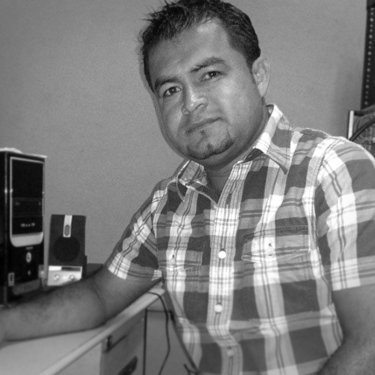Honduras must strengthen protection mechanism after TV reporter’s murder

Reporters Without Borders (RSF) calls on the Honduran authorities to do what is necessary to reinforce the country’s mechanism for protecting journalists after a local TV reporter was killed despite having a permanent police bodyguard since an earlier murder attempt in May. They must also solve his murder, RSF says.
Local Canal 24 TV reporter Francisco Ramírez was ambushed and killed on 21 December in Danlí, a city 100 km southeast of the capital in El Paraíso department, although the national mechanism for protecting journalists assigned him a bodyguard after he was shot three times in a murder attempt on 3 May, and although its alleged perpetrators were identified and arrested.
The 39-year-old Ramírez had stopped working out of concern for his safety since the shooting attack in May, but he was well known for his coverage of criminal groups in the Danlí region, whose activities include drug trafficking, and he continued to be under threat.
He was driving back to his home in Danlí on the night of 21 December when gunmen opened fire on his car, hitting him five times and killing him instantly. His police bodyguard sustained two gunshot wounds and was later reported to be in a stable condition in hospital.
“Francisco Ramírez’s murder highlights the tragic plight of local journalists in Honduras. When state protection is not enough to guarantee their safety, the conditions for journalistic freedom are no longer assured. It is imperative that the authorities investigate this murder thoroughly in order to identify and
convict its perpetrators and instigators. Rendering full justice would send a key message about the government's commitment to protecting journalists in Honduras. It is also essential for the government to examine all the flaws in the protection mechanism, particularly in the risk analysis and the type of
protection provided to journalists, in order to address the problems.”
RSF voiced concern about the precarious state of the national mechanism for protecting journalists in August 2022, after much of it was dismantled as a result of the new government’s decision to fire many of its employees. This latest murder shows that the media continue to be the targets of attacks and that the mechanism must be reinforced.
As a first step, the government must increase the mechanism’s budget in order to ensure that it has sufficient, adequately trained staff and is able to provide effective protection. Also, civil society participation within the National Protection Council and the Technical Committee – the body that decides on individual cases – must be increased in order to improve its legitimacy in the eyes of its beneficiaries. And finally, the speed and manner in which the police implement protective measures, especially in the most serious cases, such as that of Francisco Ramírez, must be closely monitored.
